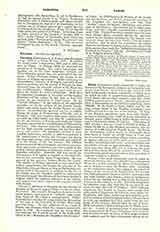

Parrenin, Dominique, b. at Russey, near Besancon, September 1, 1665; d. at Pekin, September 29, 1741. He entered the Jesuit order September 1, 1685, and in 1697 was sent to China. At Peking (1698) he attracted the attention of K’ang-hi. His varied knowledge, and familiar use of the court languages, Chinese and Tatar-Manchu, gained him the goodwill of the emperor. Father Parrenin utilized this favor in the interest of religion and science. While satisfying the extraordinary curiosity of K’ang-hi, especially about physics, medicine, and the history of Europe, he demonstrated how the scientific culture of the West was due to Christianity. Obliged to travel with the emperor, he visited the native Christians. Well liked by important personages at the court and the highest dignitaries of the empire, he led them to look with favor on the spreading of Christianity. In the “Lettres édifiantes,” he has written of the admirable examples set by the princes of the Sounou family, whose conversion, begun by Father Suarez, he completed. He rendered the greatest services to religion during the reign of Yong-tching (1723-35), son of K’ang-hi. The new emperor soon made known his aversion for Christianity and only his consideration for the missionaries at Peking, principally for Father Parrenin, prevented the extermination of Christianity in China. This emperor respected the missionaries, not for their scientific knowledge, but for their characters and virtues. He demanded services of more tangible importance, notably at audiences granted to the ambassadors of Russia and Portugal and during the long negotiations, both commercial and political, with the former of the two powers. The Chinese ministers needed the missionaries, not only as conscientious and trusty interpreters, but men capable of dispelling Chinese ignorance of European matters and of inspiring confidence. Parrenin, who had served the Government of K’ang-hi so capably in this dual role, was no less serviceable under Yong-tching. He was assisted by his confreres, Fathers Mailla and Gaubil. The mission at Peking continued to exist amid most violent persecutions, and became the salvation of the Christians of the provinces: as long as Christianity sustained itself at the capital, its position in the rest of the empire was not hopeless; subaltern persecutors hesitated to apply the edicts in all their rigor against a religion which the emperor tolerated in his capital, and against men whose confreres the emperor treated with honor. Science is indebted to Parrenin for his services in drawing up the great map of China (see Jean-Baptiste Regis). He roused in K’ang-hi a desire to see his entire domain represented by methods more exact than those of the Chinese cartographers. Father Parrenin had a hand in the preparations for the making of this map in the Provinces of Pechili, Shan-tong, and Liao-tung. He also collaborated on a map of Peking and environs, which the emperor caused to be made in 1700. He translated into the Tatar-Manchu language for K’ang-hi several of the works published in the “Mémoires de l’Académie des Sciences” at Paris. In 1723 Dortous de Mairan, of the Académie des Sciences, and Fréret, perpetual secretary of the Académie des Inscriptions, sent him their “doubts” about the history, chronology, and astronomy of the Chinese. His answers led to other questions, and this scientific correspondence continued until 1740. Father Parrenin’s conduct may not have been always above reproach during the agitation caused in the Chinese missions by the famous controversy about the rites (see China; The Question of Rites). But his whole life contradicts the odious character attributed to him by writers who edited with more passion than truth the “Mémoires historiques du Cardinal de Tournon” and the “Ancedotes sur l’Etat de la Religion clans la Chine”.
JOSEPH BRUCKER

